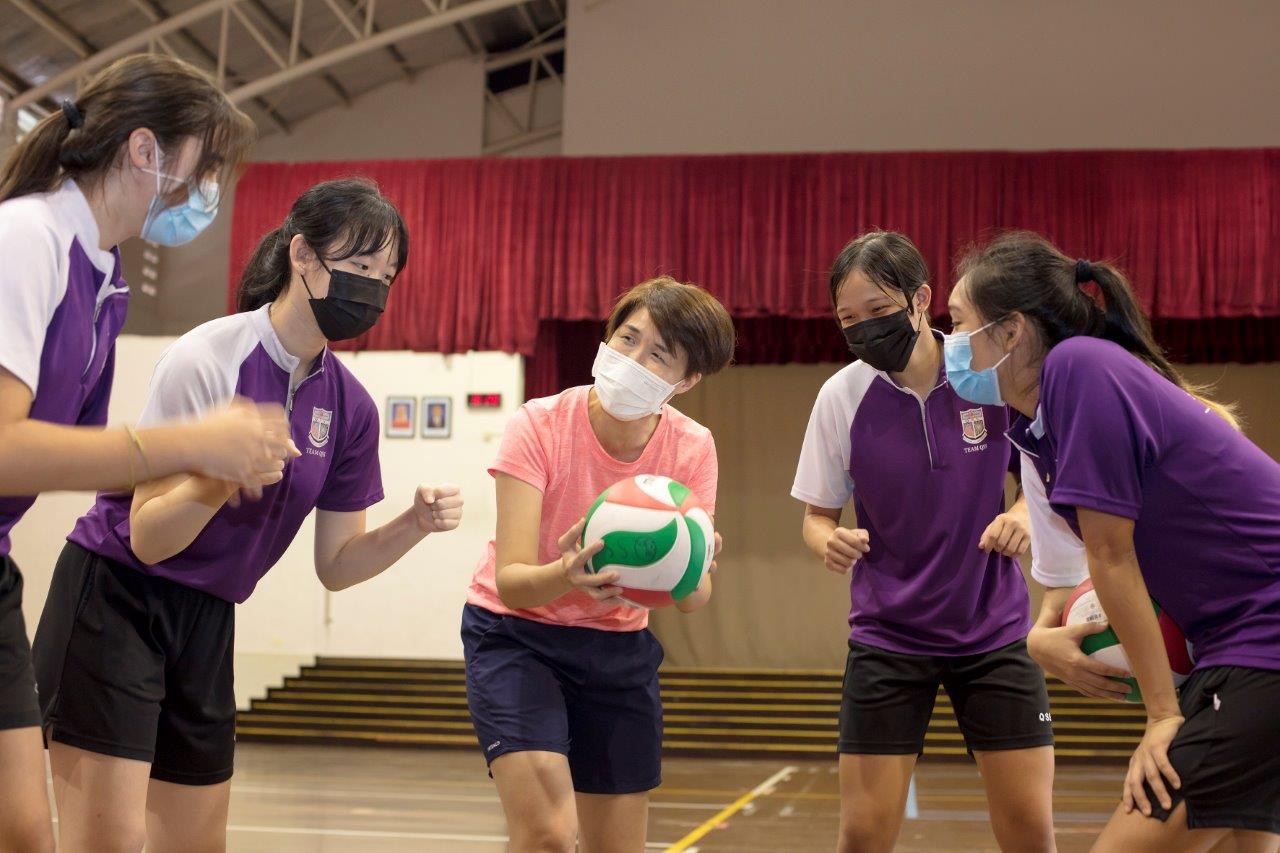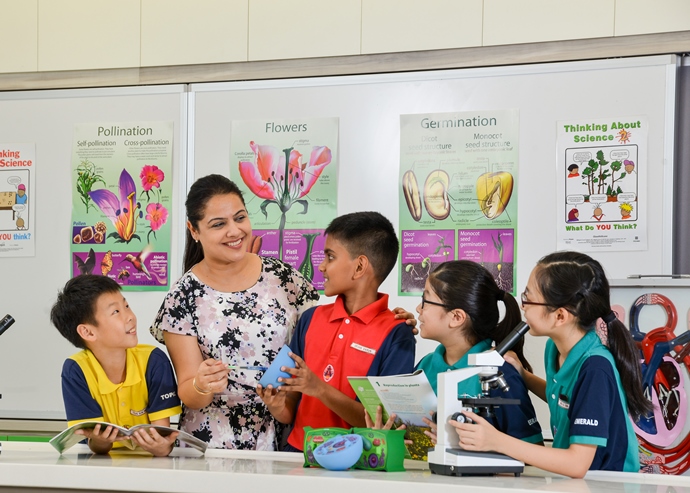Mr Oh Chee Kiat, ITE College East, President’s Award for Teachers 2020
Derrick Tan slouched into his first Cyber and Network Security class in 2019. He was demoralised and felt that he had no path forward.
But Derrick’s attitude changed upon entering the TinkerSPA{CE} – the brainchild of Oh Chee Kiat, ITE Senior Lecturer-Mentor of Cyber and Network Security.
TinkerSPA{CE} is full of… well… toys. It has 25 computers installed with Minecraft: Education Edition – yes, the game, Minecraft – as well as LEGO® SERIOUS PLAY® and LEGO® MINDSTORMS® (often used as a basis for robotics and STEM education).
“Students can come in and play. They have to attend a briefing – training on the three tools, a basic introduction – then we will pose challenges to them,” said Chee Kiat.
Not just fun – games rule!
The point of the games is to help students – whether it’s with their first-year modules, or to explore their personal interests.
“For example, some of our students want to know more about cybersecurity. Instead of just explaining to students the theory, we [contextualise it] let them play Minecraft Cybersecurity. It has cybersecurity concepts embedded,” said Chee Kiat.
As they play, the situations and concepts draw them in to uncover cybersecurity concepts within the game. “That will increase the engagement, it will spur their curiosity and get them to find out more about the topic. After the game-play, we have a reflection session to discuss the topic.”
Similarly, the LEGO® SERIOUS PLAY® kit and LEGO® MINDSTORMS® kit are for hands-on construction and tinkering. These kits are used to facilitate discussions.
Back to Derrick. He was put into a group constructing a Virtual Campus. This realistic 3D rendering of ITE College East is intended to help new students familiarise themselves with the sprawling grounds of the college during orientation.
Using the ‘building materials’ within Minecraft in the elaborate construction of the campus, Derrick found himself also piecing together a new opinion of himself. “It made me realise that I am actually more creative than I thought I was. It helped to develop my sense of worth.”
This sort of moment is important especially when students have self-esteem issues. “[Being able to successfully contribute to a project] helps them recognise that they are not nobodies,” says Chee Kiat. “They can achieve things if they put in effort. And that is when they find their confidence [again].”

The lifelong game of learning
Chee Kiat’s route to play-based learning and ITE is a twisty path that includes an MNC and government service. But his “compass” has always pointed at ITE – his own alma mater.
“I am an ITE graduate and personally I benefitted from an ITE education. When I entered the then-vocational institute…I was not academically inclined, and it gave me a different pathway to succeed in life. It gave me a chance to shine.”
SMEs form a big part of Singapore’s economy, he explained, “at least 30% to 40% – and our students make up the bulk of their workforce”.
“I think students need passionate teachers who believe in their ‘possibility’ and will help them see the possibility of success. They need motivators. Now, as a mentor for the last 3-4 years, I am in a position to motivate the lecturers, too!” And as for why game play?
Explained Chee Kiat, “The Singtel’s CyberSecurity Institute (CSI) had developed a game to engage with MOE schools. At the same time, I also visited the Institute of Adult Learning, where passionate [staff] developed game-based classes to engage adults.
“So that gave me the idea: from students in schools to adult learners, it seems like games can
[offer] motivational impetus to help people learn, especially concepts that are hard to grasp.”
After studying play-based learning with the LEGO Foundation and Microsoft (which owns Minecraft) and experimenting with it on a smaller scale in his own classes, Chee Kiat finally got to launch his lab in 2018 to allow students to learn by doing – and playing.
He explained, “The pyramid of learning shows that if one is [only] a content consumer, usually the retention rate is under 5%, but if you learn by doing, the retention rate can be increased to 75%. Plus, games can motivate students to learn.
“With play-based learning, students don’t just learn content, they acquire the 21st century skills of complex problem-solving, creativity, collaboration, communication and critical thinking.”
With Chee Kiat’s championing, TinkerSPA{CE} went from a corner inside another lab to a kitted-out standalone lab.
“All our TinkerSPA{CE} students became builders,” revealed Chee Kiat. “They became motivated. They do not want to be just players, they want to contribute. Now we have students designing teachable lessons in the form of games that are incorporated into the curriculum.”
Reflecting real life
One such lesson is Virtual Hospital, ITE’s first MOE-Tertiary Research funded project that is built on game-based pedagogy.
“The project was sparked by a study at Tan Tock Seng Hospital, which found that nursing students scored low compliance rate in hand-hygiene in the clinical settings.”
To change that, second-year nursing students at ITE College East helped create Virtual
Hospital — an educational game where players ‘roam’ through a realistic virtual hospital and do hand-hygiene practice in the clinical environment.
The next year, 2019, they got 40 first-year nursing students to regularly play it. And it worked. Tests showed that after eight weeks of playing the game, this batch of students became significantly more compliant in observing hand-hygiene compared to 40 “control” course mates who did not play.
The game is now incorporated into ITE College East’s curriculum for all first-year nursing students.
Both Virtual Hospital and Virtual Campus – used for Orientation during COVID-19 when physical activities couldn’t be carried out – stirred the global education fraternity, said Chee Kiat, who has been presenting the two forms of game-play at various international forums including at Microsoft.
“Many were impressed by how we were able to integrate vocational training into Minecraft. We are among the very few who have used Minecraft to teach topics such as cybersecurity and nursing.”
Learn as you teach
In his continuing effort to get students to be active learners, Chee Kiat gets them to develop videos on what they’ve learnt and share it with their classmates. The idea is that through this process, their retention rate would improve.
There were some great surprises.
Nasleema Nafilah Bte Raffic was so shy she hardly conversed with anyone. But via video, she was able to deliver a polished presentation on the topic of system administration.
Recalled Chee Kiat: “Her tone, the way she presented herself, was so impressive. She showed us that she could be articulate. She shocked everyone.”
Today, for Chee Kiat’s modules, 30% of the content is delivered through student webinars.
The idea has also caught on across ITE. At ITE College West , culinary students learn via the student-group video call using Microsoft Teams in their Decorative Work module. At ITE College East, chemical process students use LIVE streaming and Action Cameras for authentic learning in their Process Plant module.
Helping teachers become more intent on play
Chee Kiat is not just helping students learn through play, he is spreading the message to lecturers. As Chairman of the Mentor Network at ITE College East, he leads the training of 30 mentors in applying play-based learning.
“I invite external speakers to help train and motivate us. I organise short workshops, events for mentors to get exposure to teaching pedagogy – how we can empower our students to learn more, what different methods they can use to learn, and the current trends,” he said. They also go on learning journeys to other educational institutions.
“Nurturing a community of mentors will increase the number of passionate lecturers who are equipped to make a difference. After all that’s the very reason why I chose to be a teacher at ITE.”



.jpg)


